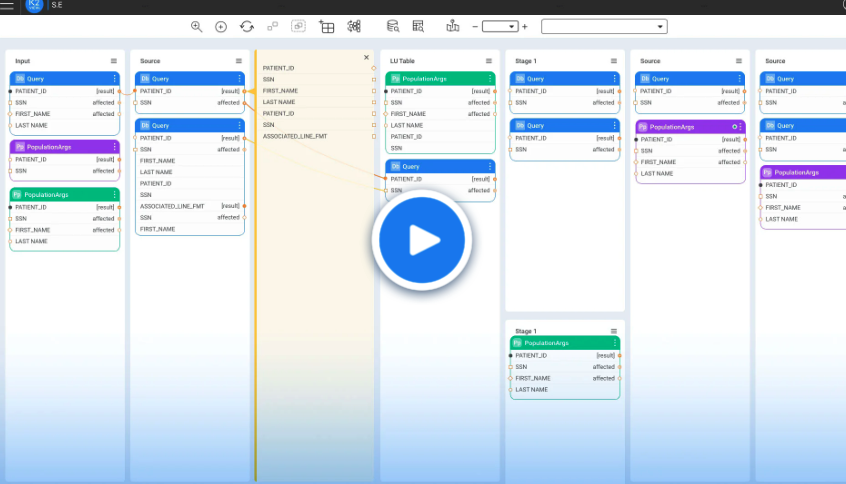Table of contents
When properly managed, data can bring many valuable insights and business opportunities. According to McKinsey, data governance enables companies to significantly decrease costs and unlock multiple business use cases that could be worth billions of dollars.
Table of Contents
Realizing the Value of Your Data
1. Sustaining Compliance
2. Saving Time and Money
3. Achieving Real-Time Availability
4. Driving Business Results
5. Elevating Data Efficiency
Realizing the Value of Your Data
Managing and protecting a large enterprise’s data is no easy task. More than a few organizations are still not sold on the idea of investing in data governance, perhaps because more than half of executives do not consider data an actual business asset.
But they may be singing a different tune after reading this post. The following benefits of data governance are meaningful, achievable, and critical to an organization’s healthy growth.

Ungoverned data looks like this. Improper indexing puts sensitive data at risk.
Here are the 5 key benefits you can expect if you invest in crafting and executing a solid data governance initiative:
1. Sustaining Compliance
Customers aren’t the only ones interested in fast and accurate answers. Authorities demand that businesses remain compliant with local and global data privacy regulations that require a certain level of control and management. When discussing the monetary value of data as part of the discussion around the benefits of data governance, we must consider related legal fines and procedures.
Poorly managed data leads to breaches of regulations and security. Companies are at risk of exposing sensitive data simply because it wasn’t categorized correctly and remained insufficiently protected. Data governance allows companies to assign suitable security measures and employ data masking tools – making sure not to aggravate customers, or authorities.
2. Saving Time and Money
Searching for answers shouldn’t be a time-consuming, nerve-wracking experience. But when you don’t know where to look, it is. Research finds that 70% of organizations waste at least 10 hours a week on data-related tasks, mainly searching for information. Imagine saving all this time, and investing it in growing and improving your business.
3. Achieving Real-Time Availability
The difference between disorganized and governed data is revealed when companies (or rather their customers) need accurate answers, in real-time. One of the main benefits of data governance is the practical structure of information that enables data teams and online infrastructures to quickly reach, gather, and analyze the required information. Governed data elevates the level of service, companies can offer their customers. Responding to a query with the right answer, right away, makes the company seem more in control, and boosts user trust and satisfaction levels.

When IT and business work together, each with clear roles and responsibilities, it’s a win-win situation.
4. Driving Business Results
Data governance is more than a technicality – it’s a framework. It brings teams together, unifying ideas and terminology. It establishes shared goals and builds a clear language across the organization. KPIs, alert rules, privacy policies, and other data-based structures, essentially map the organization’s values as they are manifested in the data. This process is highly beneficial for companies. It keeps teams consistent, increases reliability, assigns clear roles, enables smoother collaborations, and prevents costly misunderstandings.
5. Elevating Data Efficiency
We’ve discussed how time-consuming queries can be when companies fail to manage their data. When we take a closer look at the teams responsible for data-related tasks, we learn that data processing takes up more than half of analytics teams’ time. The result is disturbing, as these teams never get to focus on brilliant data insights hiding in every corner, which can significantly benefit the company.
Data is a valuable asset, and when we remove countless tedious tasks, business insights can be unlocked and used. When data is centralized and processed, it becomes accessible enough to reveal one of the leading benefits of data governance: better decision-making. According to Gartner, financial enterprises with “sufficient versions of the truth” strategy in place are 41% more likely to discover decision-ready data insights.
There are many data rewards to reap, but they demand a deep understanding of how powerful it can be for the organization. Companies must implement a flexible, practical data processing solution to enable easy access and analysis in real-time. With the right technology, they’ll become more efficient, compliant, and ready for further growth. Contact K2View’s data governance experts to enjoy these and other benefits.












